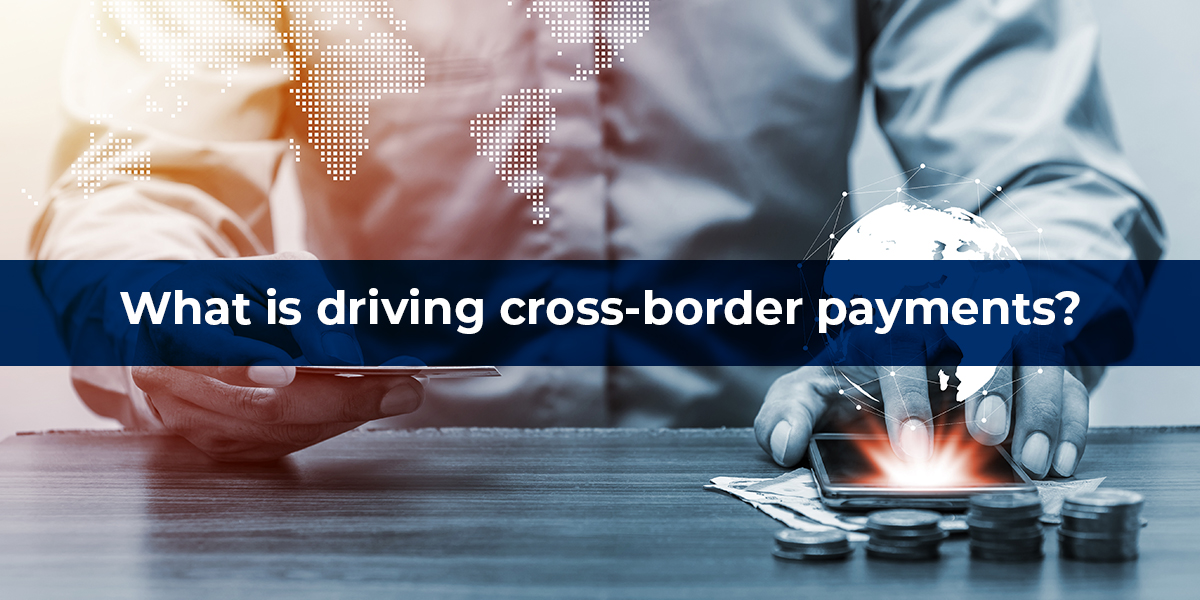
What is driving cross-border payments? - Buckzy Payments Inc.
According to EY, global cross-border payment flows are expected to reach a staggering US$156t in 2022.
The trillion-dollar cross-border payment market is being shaken to its foundations by a rush of new entrants that promise to solve long-standing pain points for businesses and consumers alike. This includes a lack of transparency, long settlement periods, high transaction costs, and limited accessibility, according to Buckzy Payments Inc, a Toronto-based global fintech on a mission to make international payments more reliable, quicker, and affordable.
Abdul Naushad, President and CEO, Buckzy, stated: “In recent years the digitalization and automation of the B2B payment system in particular has turbo charged demand among businesses looking to connect with suppliers, wholesalers, and retailers globally.
“International payments have served us well as the economic powerhouse driving and enabling cross-border trade and investment. They are the workhorse that has been instrumental in the emergence of the global economy.”
Historically, banks have been at the heart of this economy based on a ubiquitous network of trusted parties, regulatory and technical infrastructure, and liquidity. But the landscape is changing.
However, what are the core trends we are seeing today that are driving cross-border payments and powering that $156t market?
Naushad added: “At the centre is the consumer. New, more sophisticated demands from consumers are powering an unprecedented revolution in banking. Consumers are no longer willing to put up with slow and cumbersome banking services.”
The rise of the smartphone is at the forefront of this important attitudinal shift, and many incumbent banks are struggling to adapt. New alternative solution providers offering more transparent, cheaper, and quicker solutions have entered the market and are already gaining competitive advantage over legacy banks.
There can be no doubt that technology is a major force helping to shape the payments industry. According to PEW Research, in emerging economies mobile phone ownership among adults has risen to around 83%. This means more and more people have access to banking services and e-payment solutions. Matching this growth is the rapid increase in global mobile wallet usage at the point-of-sale (POS) which is expected to hit around 30% in 2023, while mobile wallet usage in e-commerce is forecast to grow even faster. According to research from Worldpay more than half (52%) of the adult population globally will have a mobile wallet by 2023.
Industry regulation is also playing a significant role. The UK and EU in particular have enabled greater competition within financial services by mandating standardized interfaces between banks and payment service providers.
This evolution of application programming interfaces (APIs) has enabled very different systems to exchange data between one another safely and securely, with no loss of information. This in turn is transforming how banks gain visibility into their businesses to deliver impactful analytics and process improvement.
Naushad added: “Perhaps the biggest driver for delivering new models of tech provision that crosses borders, businesses and consumers is the ubiquitous cloud. It has virtualized computing resources, removed the need for costly hardware, and provides extra capacity as and when needed to support spikes in demand. The days of huge data centres for banks are over.
“But this is a market facing ongoing change. The Financial Stability Board (FSB), which coordinates at the international level the work of national financial authorities and international standard-setting bodies to develop and promote the implementation of effective regulatory, supervisory, and other financial sector policies, has launched its Cross-Border Payments Roadmap.
“The roadmap sets out global targets for addressing the challenges of cost, speed, transparency, and access faced by cross-border payments. These targets are based on a consideration of the current payment landscape.
“With goods and services moving more quickly and across greater distances than ever before, customers are increasingly demanding cross-border payments that are as seamless and convenient as domestic ones,” concluded Naushad.
Notes to editors
ABOUT Buckzy Payments Inc.
Buckzy Payments Inc. is a cross-border payments network and embedded finance platform enabler for leading financial institutions and fintechs worldwide, delivering a modernized and proprietary real-time cross-border payment settlement network.
This press release may contain forward-looking statements that involve risks, uncertainties, and assumptions. All statements other than statements of historical fact could be deemed forward-looking statements, including any projections of revenues, gross margins, earnings, or other financial items; statements regarding strategies or plans for future operations; statements concerning new features, enhancements, or upgrades to our existing applications or plans for future applications; statements relating to the expected performance or benefits of our offerings; statements about current or future economic conditions or related regulatory governance; and any other statements of expectation or belief.
Buckzy Payments Inc. assumes no obligation for, and does not intend to update, any forward-looking statements.
Any unreleased services, features, functionality, or enhancements referenced in a Buckzy document, roadmap, blog, website, press release, or public statement that are not currently available are subject to change at Buckzy’s discretion and may not be delivered as planned or at all. Customers who purchase our applications should make their purchase decisions based upon features and functions that are currently available.
